Opinion
What is money?
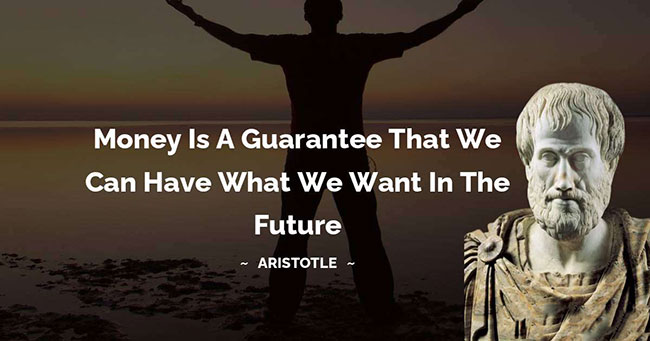
By Prof Kirthi Tennakone
People, who are over-conscious about money, strive to earn as much as they can in the shortest possible time. Some resort to crooked means of acquiring large sums. Few realise money is not everything but depends on it for survival. The poor sweat and exhaust themselves to earn pennies. Improvised beg for pennies in streets. Governments in debt plead for dollars
Whether you like it or not, money drives modern society. It is hard to think of an affair that costs no money. Being so familiar and too attached people take money for granted and rarely question what it really means. And tends to think of money in terms of currency notes and coins. Money is not something tangible but an abstract entity representing the worthiness of goods and services. Money can be moved across any distance at the speed of light, permitting beneficent transactions as well as laundering. It can be stored to postpone usage or invested.
Concept of money
Philosophers and economists have attempted to define money. According to Aristotle, money facilitate exchange of goods and serve as an assessment of worth – implying money has an intrinsic measurable value. Thereafter gold became the standard of money and the value of currency was defined in terms of weight of gold. Aristotle was materialistic, but his teacher Plato being more idealistic and abstract, disagreed. He denounced linking money to metals like gold and silver and declared money is only a symbol devised to makes exchanges of goods easier. More recent credit theory of money akin to Plato’s idea considers money as the entity that keep track of credit and debit in transactions of commodities and services. International Monetary Fund (IMF) states: money is anything that serves as store of value, unit of account and medium of exchange.
In physics familiar quantities such as length, weight and time are precisely defined in terms of fixed units. Money cannot be similarly defined to the satisfaction and precision of a physicist. It is a social attribute that emerged naturally.
The concepts in physics are understood and defined precisely. We feel temperature, it is the degree of hotness of a body, which can be measured using a thermometer. Physicists have understood temperature as average energy of random motions of molecules constituting the object. Money is also a measurable entity, but cannot be understood that accurately as the simpler idea of temperature.
Complex systems derived from a large number of mutually interacting entities acquire qualities absent or un-meaningful to an individual entity existing alone. We cannot talk about the temperature of one single isolated molecule. Likewise, money made no sense to earliest ancestors of humans, when each adult was singly dependent by himself for food and shelter. As humans advanced, the community noted there are individuals who perform better in certain tasks. Some were good at hunting, while other excelled in searching and digging yams. Why not exchange meat for yams and by how much? Three handfuls of meat for one handful of yams, because yams were a scarce commodity in the forest! The primitive tool makers had an opportunity. They would have exchanged stone tools for meat or yams; devoting lesser time for gathering food and gaining time for improvising better tools. This is the origin of barter system–exchange of goods and services. The barter marketing posed a natural hurdle; the producer of a certain item had to find a customer who possessed something he or she wanted to exchange – a double coincidence of low probability. With the advent of agriculture, grain became a commodity consumed by everybody. The quantity of it being measurable by volume; grain reached the status of a quantifiable commodity, adopted as the standard of barter – a form of money. However, grain money entailed problems. Grain cannot be stored indefinitely and instant transport of large quantities poses insurmountable difficulties. Thereafter, money shifted from grain to weighed amounts of noble metals; gold, silver and copper. Being rare and durable metals served as better exchange materials quantified in handy light weight pieces, which later transformed into coins. A community in a pacific island had used coconuts as the exchange material, one nut as the unit of money. Later, realising the inconvenience of transactions using a bulky object as exchanging agent, they resorted to a rare kind of sea shells. The pacific islanders had no contact with the continent, where metal money originated. Nevertheless, reverting from coconuts to sea shells in the pacific island is conceptually equivalent to going from grain to metal money in the continent. Things material or immaterial can represent money, provided counterfeiting is prevented. Today world has accustomed to paper money. Electronic money already there, might replace it in the future
A society progressing and moving forward, imperatively arrives at the concept of money. Aliens with capabilities similar to humans, if they exist elsewhere in the universe, would undoubtedly use money for their activities. A civilisation cannot advance without invoking the idea of money. How else they would exchange goods and compensate services? English novelist and historian H.G. Wells in his work ‘A modern utopia’ says, I do not see how one can imagine anything at all worthy of being called a civilization without money.
Is money also an evil?
Money is neither an evil nor a virtue intrinsically. Nonetheless, literature frequently portrays money as an evil. According to Aristotle man’s ambition and desire to make money are the most frequent causes of deliberate injustice. Bible says love for money is root of all evil. In the play ‘The Merchant of Venice’ Shakespeare writes a love for money can be deadly. Treating money as something sinister had also originated from the attitude of predatory money lenders. In early days when barter economy was transforming into a currency system. Peasants and workers were deprived of new commodities purchasable only with currency. Money lenders offered coins for unwarranted rates of compound interest. They quarreled and harassed peasants in the event of failure to settle the loan with due interest. Often the law of the land favored the moneylender, supported by corrupt officials of the state. When East India Company introduced their coins to Sri Lanka, moneylender exploited our famers. Folklore recite many such incidents.
Evil is not money but the manipulations of opportunists who grab money unfairly and illegally or use of money to inflect crime. Rightful earning of money is not considered a sin but a meritorious deed worthy of praise as told in Chulasetti Jatakaya.
Chulasetti Jatakaya
Chulasetti who inherited his father’s position as the Treasurer of the King Brahamadatta was a man of unmatched wisdom-a Bodhisattva. One day on way to the palace he saw a dead mouse lying on the road. With a burst of foresight, Bodhisattva declared this is an opportunity for young man to be rich and marry a woman. A poor lad having overheard the words of the Bodhisattva, picked up the carcass sold it for one penny to a nobleman fondling a cat. With the penny he bought jaggery. Serving sweet and water to tired men returning from jungle after collecting flowers, he earned eight pennies. After a series of many other innovative pursuits, he earned sufficient money to buy a shipload of merchandise and sold them to wealthy persons in the town. One day he went to see Chulasetti and told him, I earned so much money because of your words. Chulasetti said, you deserve praise for earning money rightfully. I will give my daughter in marriage to you and transfer my wealth.
Money is neutral and innocent. The neutrality permits any person irrespective of his or her social standing to earn rightfully and become rich, whereas innocence allow rogues to pilfer billions. Society honors the former and condemn the latter.
Relative value of money
A kilogram of sugar costs around 500 rupees in Sri Lanka and about 0.4 dollars in United States. On basis of these prices, can we deduce sugar is more expensive here than in United States? One would argue, as one US dollar amounts to about 360 Sri Lankan rupees, sugar is lot more expensive in Sri Lanka. But what made one United States dollar equivalent to 350 Sri Lankan rupees? The value of money is relative. Conversion rate of US dollars to another currency is absolutely determined by comparison of the average purchasing power of the two currencies. However, currencies are also marketable commodities, value determined by supply and demand, which depend on factors additional to purchasing power and determined by the foreign exchange market. The Central Bank adjust the value of local currency accordingly. Central Banks also have the authority to set the value of local currency at a desired level relative to the dollar. If the productivity of a nation is low, devaluation (depreciation) of its currency would be advantageous, whereas the impact of revaluation (appreciation) likely to be negative; when it comes to earning of foreign exchange.
Wages and prices of goods together decides money’s worth in the society. If you express price of sugar as a fraction of the average wage of people in United States and Sri Lanka, you can meaningfully conclude sugar is cheaper in United States. Obviously, this fraction remains independent of the unit of currency. Likewise, the fraction defined as: the average price of goods divided by the available supply of money remain invariant with respect to the unit of currency. Economists, conjecture that the price level of goods increase in proportion to the money supply. When a government print money to raise the wages, the price level escalates. Compelling workers to demand further salary increases and if implemented by printing more money, prices of goods continue to increase – an economic outcome referred to as hyperinflation. The price of goods can be reduced effectively only by boosting the production.
Hard currency
Nation cry for dollars, shouting we cannot purchase adequate quantities essential commodities without this brand of money. Hard money means a kind of currency accepted in international transactions and readily convertible. United States dollar stands as the hardest currency – competitively preferred in global business dealings. Other currencies acknowledged as hard are; Euro, Japanese Yen, Great Britain Pound, Swiss Franc and Canadian and Australian Dollars. A general consensus of credibility in transactions determine hardness. The countries where hard currencies originate are politically stable and economically sound offering a wide variety of quality goods and services. It is impossible to define a hard currency precisely. They originate as competitive selection of different brands of money.
Development plans and Monetary Policy
Every country obtains a portion of goods and services from abroad. Demanding foreign exchange which has to be earned and maintained as a reserve. Lower the productivity greater is the requirement of foreign money. Increasing production to optimize local requirements and delivery of exportable goods and services ensure hard currency earnings and economic stability. During past few decades many nations, previously classified as underdeveloped have achieved this goal.
Development plans and monetary policy of a nation are intimately linked. Monetary policy means management of money by a Central Bank to secure price stability and employment. Economic theories and empherical evidence indicate sustainable economic growth necessitates maintenance of a low price level. Unfortunately, foreign exchange heavily influences the price structure and availability certain goods, compelling governments in low income countries to go for loans, to be paid back with interest. The situation is critical when countries are heavily dependent on imports for routine consumption and development. If borrowed funds are not properly utilized or misused the consequences would be disastrous.
Improper expenditure of money by governments: Wrong policies
The greatest harm to an economy would be the diversion public funds to avenues having no bearing on production and social wellbeing. Such expenditures incur as massive projects commissioned without ascertaining economic returns or misappropriation.
Providing extraordinary financial benefits to sectors not commensurately contributing to the society, constrains the budget and discourages productive groups who agitate for fairness. Programmes geared for alleviation of poverty and employment are sometimes counterproductive. Poor should be supported to become rich providing substantial inputs, instead of stagnating them at the same level of deprivation giving token subsidies. Instead of exploiting cheap labor to earn dollars, country needs to introduce policies to breed high quality labour for domestic and overseas expectations. Increasing work force for shake of employment creates inefficiency.
The human resource turns productive and innovative only when they receive proper education. It is a myth to believe that a general education inclined only towards technology will nurture innovators. Educational reforms have to consider inculcating rational thinking, absence of which is the root cause of many social ills. Innovators are dreamers who undertake risk, dispelling myth. Our policies should be geared for the purpose.
An example of wrong policy that will go to history is banning of chemical fertilisers. Even a high school student who had assimilated science understands why the present-day food demand cannot be not met without concentrated fertilisers. The stupidity and motives of the politician is one thing, but a band of so- called experts advocated the idea. The ineffectiveness of their carbon, organic, microbial, bio and biofilm fertilisers has now been manifested to the nation and world at large. Agricultural specialists in our institutions did not (could not) turn out sufficiently vociferous to nip the foolish idea in the bud!
The fertiliser episode reflects a serious fundamental flaw in our entire establishment. Identifying all the factors (not necessarily pertaining to agriculture) and their elimination is absolutely essential to rebuild the nation.
Author can be reached via email: ktenna@yahoo.co.uk
Opinion
Those who play at bowls must look out for rubbers
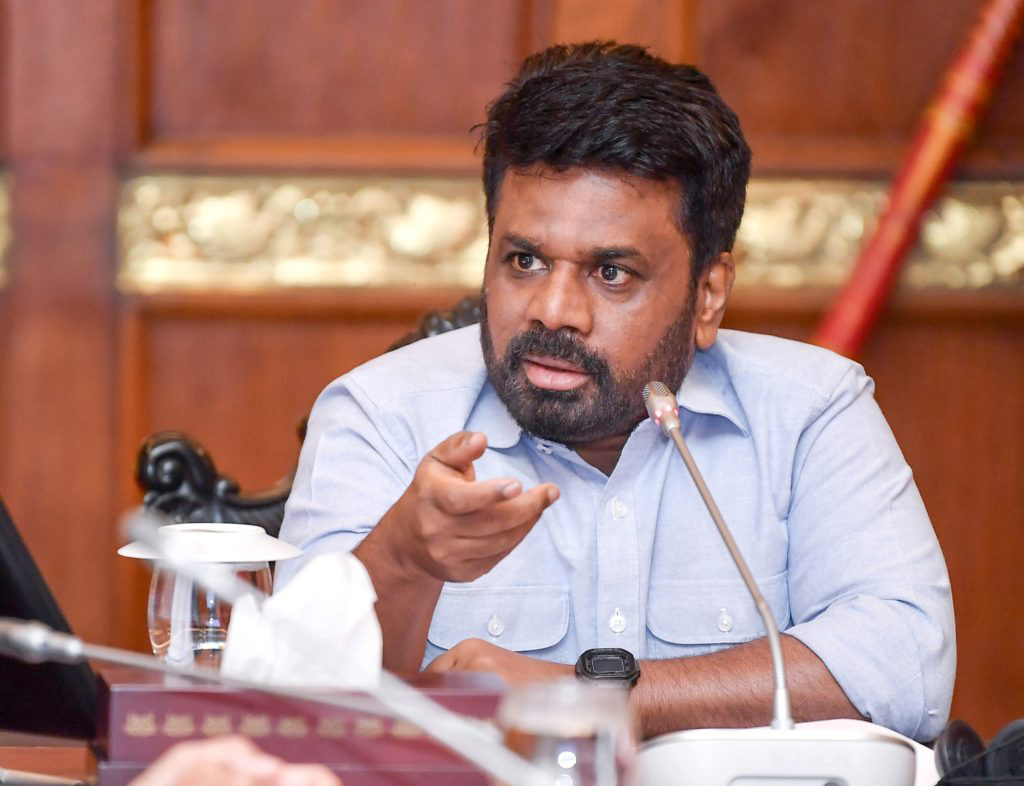
President Anura Kumara Dissanayake should listen at least to the views of the Mothers’ Front on proposed educational reforms.
I was listening to the apolitical views expressed by the mothers’ front criticising the proposed educational reforms of the government and I found that their views were addressing some of the core questionable issues relevant to the schoolchildren, and their parents, too.
They were critical of the way the educational reforms were formulated. The absence of any consultation with the stakeholders or any accredited professional organisation about the terms and the scope of education was one of the key criticisms of the Mothers’ Front and it is critically important to comprehend the validity of their opposition to the proposed reforms. Further, the proposals do include ideas and designs borrowed from some of the foreign countries which they are now re-evaluating in view of the various shortcomings which they themselves have encountered. On the subject, History, it is indeed unfortunate that it has been included as an optional, whereas in many developed countries it is a compulsory subject; further, in the module the subject is practically limited to pre-historic periods whereas Sri Lanka can proudly claim a longer recorded history which is important to be studied for the students to understand what happened in the past and comprehend the present.
Another important criticism of the Mothers’ Front was the attempted promotion of sexuality in place of sex education. Further there is a visible effort to promote trans-gender concepts as an example when considering the module on family unit which is drawn with two males and a child and two females and a child which are nor representative of Sri Lankan family unit.
Ranjith Soysa
Opinion
Seeds of discord
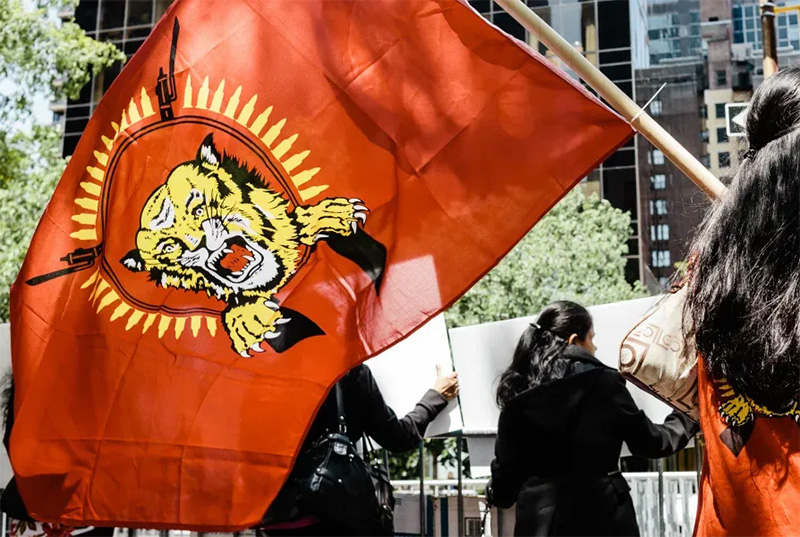
When the LTTE massacred people, mostly Sinhalese Buddhists, government leaders never claimed that the Tamil community, which the LTTE claimed to represent, was driven by hatred. That restraint mattered. That is why it was outrageous to hear President Anura Kumara Dissanayake tell Tamils that Buddhists visiting the North to worship were doing so out of spite. If reports are accurate, the President also declared that we needed a prosperous nation free of racism and united in spirit. Yet, in the same breath he sowed seeds of division recklessly.
Had he spoken in Tamil or English, some might have dismissed it as a slip of the tongue. But in Sinhala, the words carried unmistakable intent. Who could have expected such divisive rhetoric to come from the head of a nation now enjoying fragile coexistence, after enduring a 30‑year war and two insurrections that devastated the economy?
A Ratnayake
Opinion
Where are we heading?
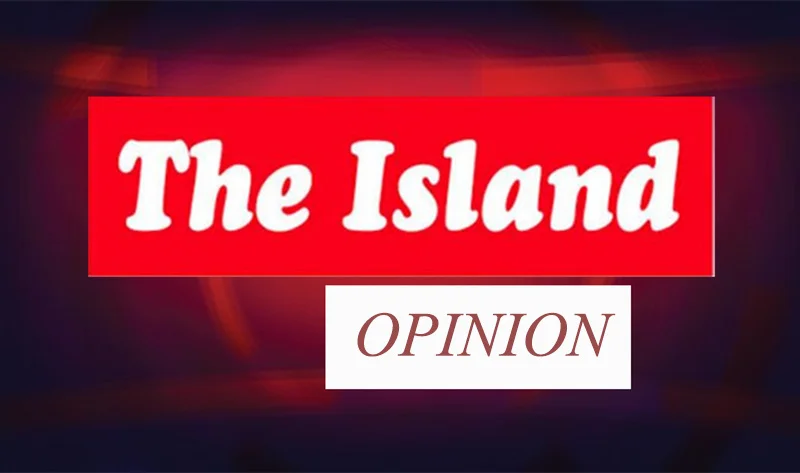
The Island editorial, dated 22 January, 2026, under the title ‘Conspiracy to subvert constitutional order,’ is an eye-opener to those who supported the so-called Äragalaya in July 2022 and those who voted to bring the current regime into power with various positive expectations, including ‘ a system change’. ( https://island.lk/conspiracy-to-subvert-constitutional-order/ )
The editorial highlighted, with irrefutable evidence, how a foreign diplomat and a group of Sri Lankans, consisting of some religious leaders (a Buddhist monk, some Catholic priests) and a trade unionist, made a blatantly illegal bid to pressure the then Speaker Mahinda Yapa Abeywardena to take over the executive presidency in violation of the Constitution. The intention of the intimidator tactics was said to be to create in Sri Lanka a situation similar to that in Libya.
The editorial also mentioned how Minister K.D. Lal Kantha and his JVP attempted to lead the Aragalaya protestors to capture Parliament, but without success. Addressing a public rally, under the title ‘Let’s read Lenin’, a few days ago, Minister Lal Kantha has revealed that their planning was to follow what Lenin had said and done during the Russian revolution. Minister Lal Kantha said: “We do not have the power of the State although we managed to obtain the power of the Government. Hence, we are now engaged in the struggle to win the power of the State’’.
In a democratic society, there is a need to ensure maintaining Law and Order without any state interference. It looks like the intention of the Minister is to bring the Police, Armed Forces and the Judiciary, including all the State Services, under direct control of the ruling party, by filling those positions with JVP loyalists to suppress the opponents of the government.
There is also an attempt by the JVP-led forces to remove the Attorney General by making unsubstantiated allegations against him. As per a latest news item in The Island, under the title “Opposition slams sitting HC judge’s appointment as Justice Ministry additional Secretary”, is alleging President Anura Kumara Dissanayake of trying to control the judiciary by appointing a sitting High Court judge as Additional Secretary to the Justice and National Integration Ministry. (https://island.lk/opposition-slams-sitting-hc-judges-appointment-as-justice-ministry-additional-secretary/)
On the other hand, the ruling party is trying to appoint one of their cronies as Auditor General, possibly, to cover up a number of questionable deals made during the year they ruled and to ensure achieving the so-called power of the State.
Unless the people, especially those who naively dreamt of ‘a system change’, have a clear understanding of the ultimate goal and motives of the ongoing changes and take appropriate actions to protect their own democratic rights, they will be left with no other alternative but to live under a repressive government.
Sangadasa Akurugoda
-

 Business2 days ago
Business2 days agoComBank, UnionPay launch SplendorPlus Card for travelers to China
-

 Business3 days ago
Business3 days agoComBank advances ForwardTogether agenda with event on sustainable business transformation
-
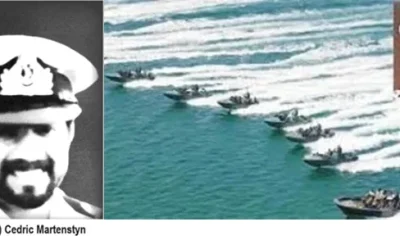
 Opinion6 days ago
Opinion6 days agoRemembering Cedric, who helped neutralise LTTE terrorism
-

 Business6 days ago
Business6 days agoCORALL Conservation Trust Fund – a historic first for SL
-

 Opinion3 days ago
Opinion3 days agoConference “Microfinance and Credit Regulatory Authority Bill: Neither Here, Nor There”
-

 Opinion5 days ago
Opinion5 days agoA puppet show?
-

 Opinion2 days ago
Opinion2 days agoLuck knocks at your door every day
-

 Features7 days ago
Features7 days agoThe middle-class money trap: Why looking rich keeps Sri Lankans poor













